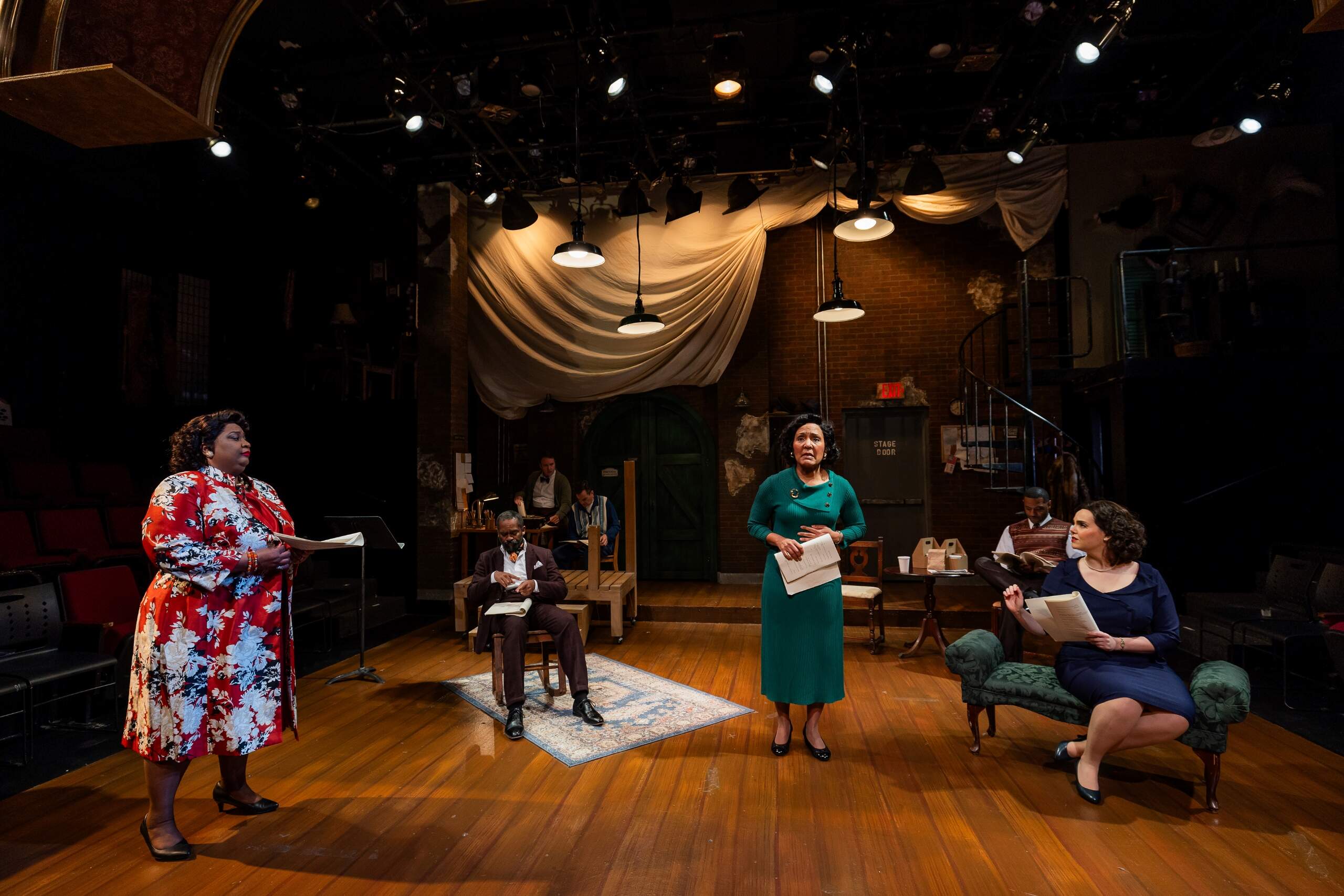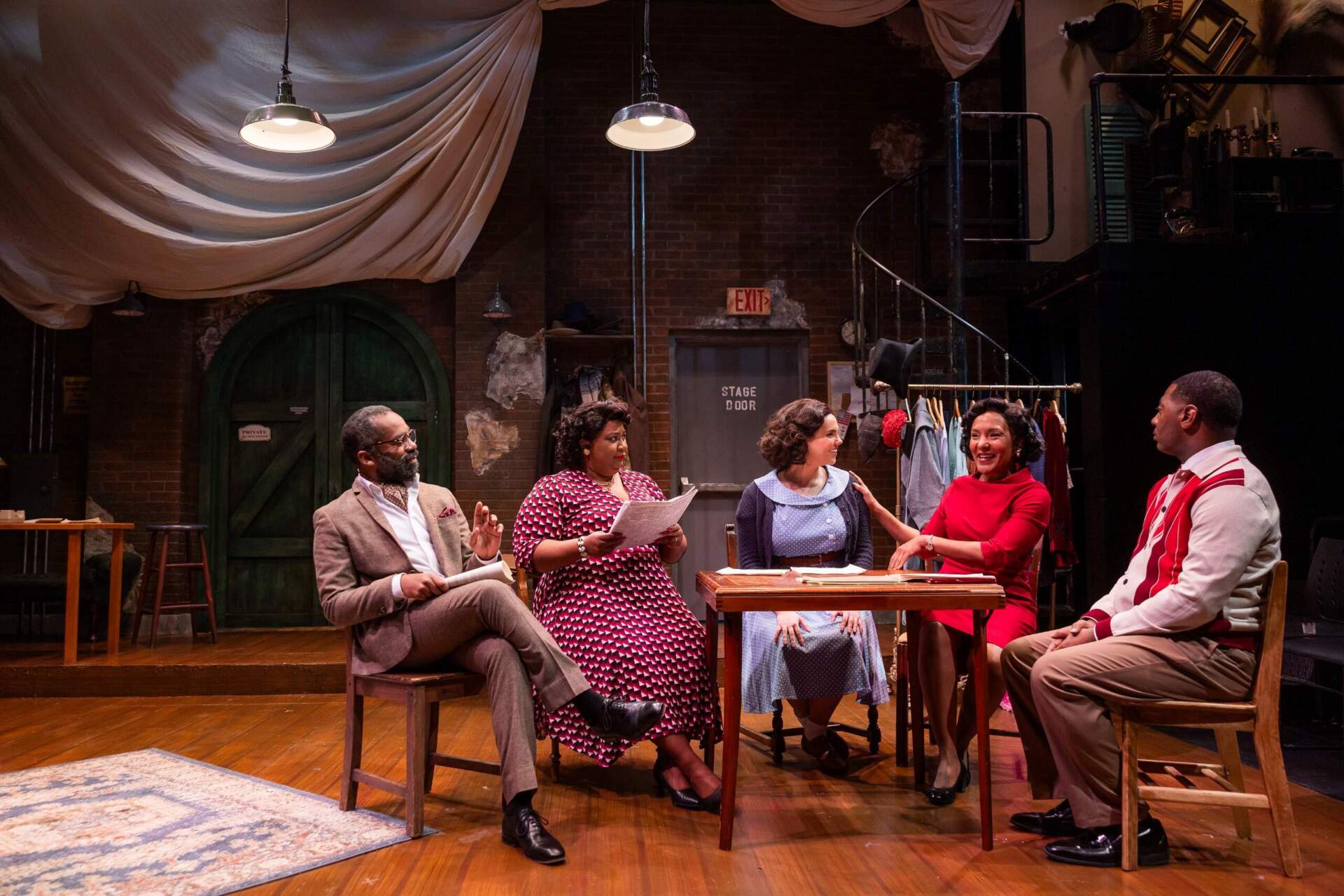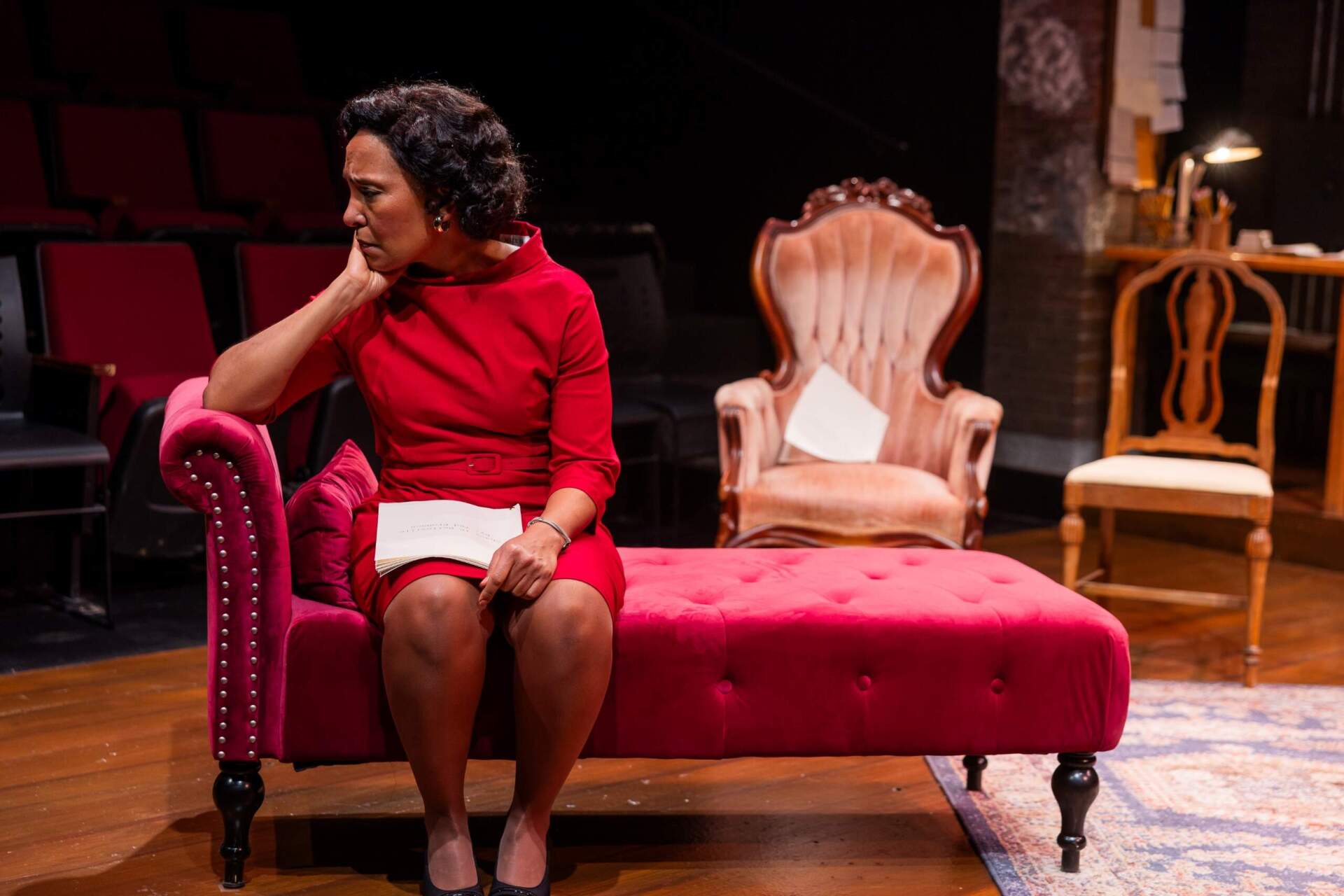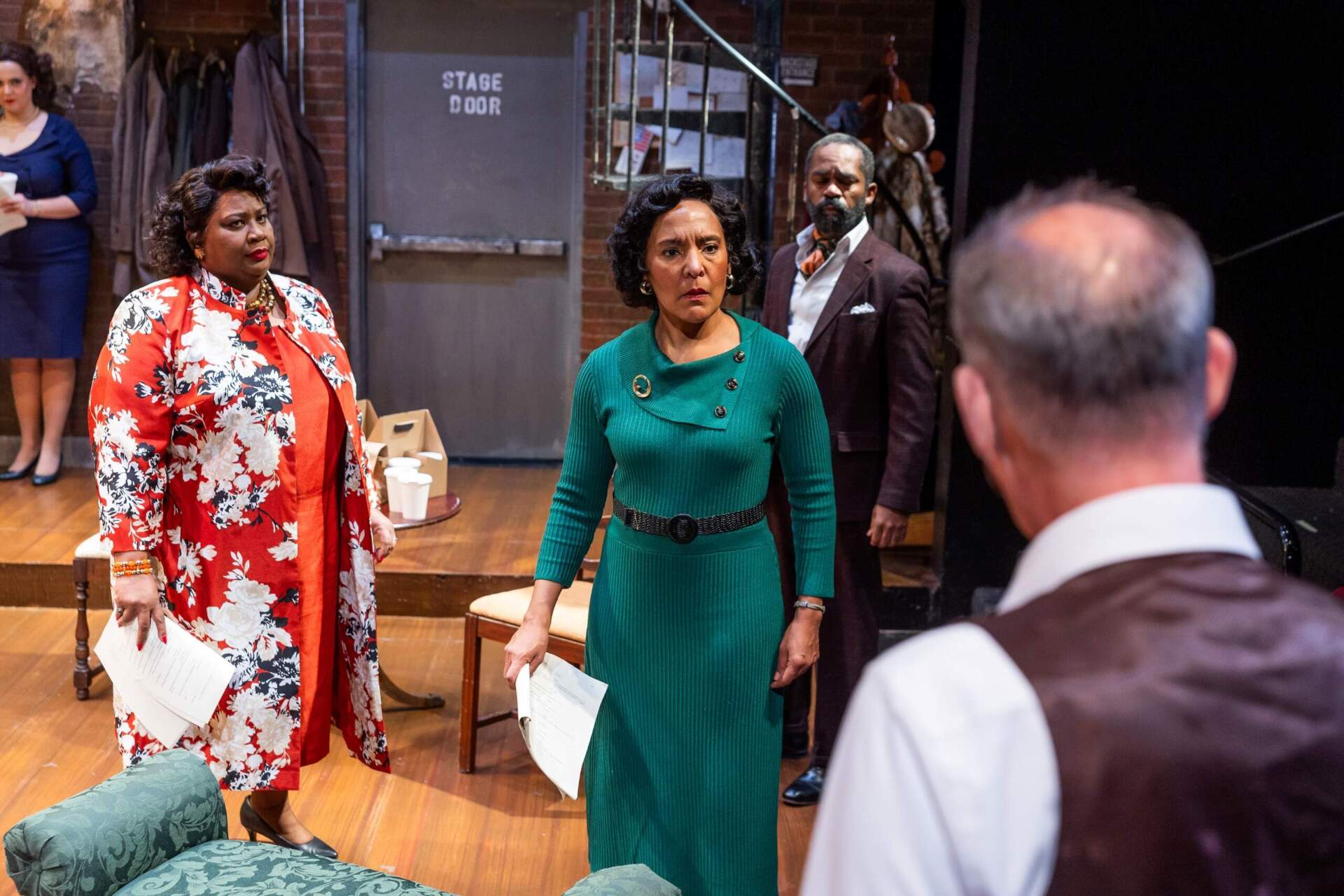Advertisement
Review
Lyric Stage Company's 'Trouble in Mind' weighs the cost of truth-telling

As an artist, how much of oneself must be present in the work? How much is too much to share?
The late prolific author James Baldwin, who penned “I Am Not Your Negro” and “Giovanni’s Room,” among others, wrote “All art is a kind of confession, more or less oblique. All artists, if they are to survive, are forced, at last, to tell the whole story, to vomit the anguish up.”
That may be necessary for some, but truth-telling, even if it does set one free in a way, comes with costs.
In Lyric Stage Company’s compellingly directed and entertaining production of “Trouble in Mind” (through Feb. 4), Wiletta Mayer (marvelously portrayed by Patrice Jean-Baptiste) isn’t too concerned with sharing her whole self in her work. Not at first. Wiletta, a seasoned thespian, is starring in a Broadway show, “Chaos in Belleville,” about anti-lynching written by a white playwright and helmed by a white director, Al Manners. In “Chaos in Belleville,” a group of black folks want to vote, but white owners put a stop to it.

On set, Wiletta’s friendly, she knows what directors want from her, and she tells a younger colleague, John (portrayed by a consistently good Kadahj Bennett), to laugh at everything their white counterparts say, not to get too close, and to hold back real feelings. It’s easier that way. Or maybe it isn’t.
“Trouble in Mind,” written by the late Black playwright, actress and novelist Alice Childress, premiered in 1955, the same year the Montgomery bus boycott began and the year of Emmett Till’s murder. And the show hit the stage a full decade before the passage of the Voting Rights Act. Childress’ narrative, which plunges into racism, sexism and stereotypes, highlights what it was like to navigate American theater at that time.
A journey that Childress was no stranger to. The play was particularly risky, but her willingness to rail against the system is admirable and courageous. The show was reportedly set to have a run on Broadway, but the opportunity hinged on Childress making some changes to the script. She declined. However, the play finally made it to the Roundabout Theatre Company on Broadway in 2021, a year marked by Derek Chauvin’s trial and conviction for the murder of George Floyd and the storming of the U.S. capitol.
A lot has changed in the theater since the 1950s. The previously prevalent docile maid and mammy roles are much fewer, Jim Crow laws segregating Black and white people (including theater and cinema audiences) were overturned and several Black stories written by Black playwrights — including narratives by August Wilson, Childress and Lorraine Hansberry — have been to Broadway. But there will always be more work to do.

A year before the Broadway debut of “Trouble in Mind,” more than 300 BIPOC theater workers banded together to craft a letter to White American Theater demanding change and later released an accountability report that highlights theaters re-examining their policies and committing to anti-racism on and off the stage including the nearby American Repertory Theater and the SpeakEasy Stage Company. SpeakEasy has even hired an equity, diversity and inclusion consultant to help the theater deliver more inclusive cross-cultural work while ensuring an equitable work environment.
But, in the play within a play written in the 1950s, directed by Front Porch Arts Collective’s Dawn M. Simmons, these changes haven’t come about yet. In “Chaos in Belleville,” there’s a group of Black folks who want to vote, but the white people in power intend to stomp out such ambition with violence. In particular, they want to make an example of Bennett’s John, who plays Wiletta’s son in the show. The trouble is with how the story of this tragedy unfolds and all the characters who allow it. For example, Wiletta’s character turns her son over to be killed. Even though she might have played such characters in the past, Wiletta protests to the director, Al Manners (Barlow Adamson), who tells her repeatedly not to think. He repeatedly dismisses her concerns which causes her to become fed up.
The play’s subject matter is meaty for sure, but humor helps bring some levity, so the timbre doesn’t veer too far into darkness and dwell there. The fantastically clad cast — courtesy of Rachel Padula-Shufelt (including the character Sheldon’s suits and a memorable bright orange dress and flowered overcoat donned by the character Millie) — delivers stellar performances on a well-appointed set designed by Shelley Barish. But some of the best moments are between Jean-Baptiste’s Wiletta and Henry (Robert Walsh), who is dealing with memory loss. Henry works in the theater where the cast is rehearsing and is a fan of Wiletta’s work. He is a kind soul who is belittled by the director for his minor mistakes. Whenever possible, he comforts and reassures Wiletta in their private chats.

At some point in the play, Wiletta reaches a breaking point. The director is unbearable and mean, and the storyline is thorny. Wiletta, pushed out of her comfort zone when asked about her motivation when delivering her lines, thinks deeply about her work in a way she hadn’t before. Doing so opens up something inside of her that she isn’t able to turn off again. Wiletta tells her newfound friend Henry that she always wanted to be an actress and to do something grand in the theater. And so she arrives at that moment, as Baldwin attested, where an artist must regurgitate all the pain and anguish up. The heartfelt monologue Jean-Baptiste powerfully delivers and the response from other cast members, including Adamson’s Mr. Manners, do not disappoint.
I’m not sure there’s anything grander than telling the truth. However, doing so comes at a significant toll. But then again, so does remaining silent.
Lyric Stage Company’s “Trouble in Mind” runs through Feb. 4.
